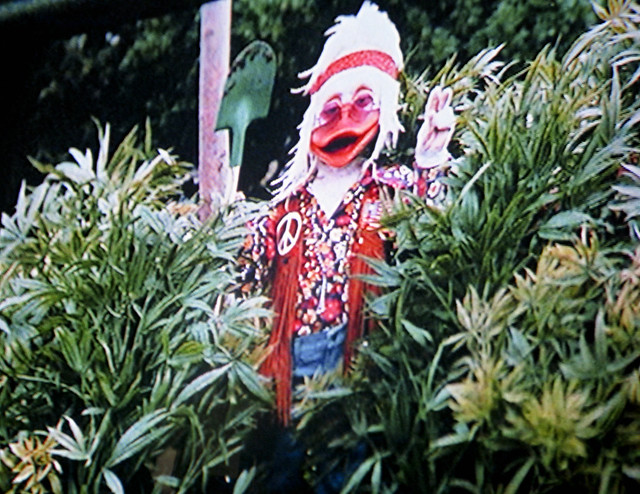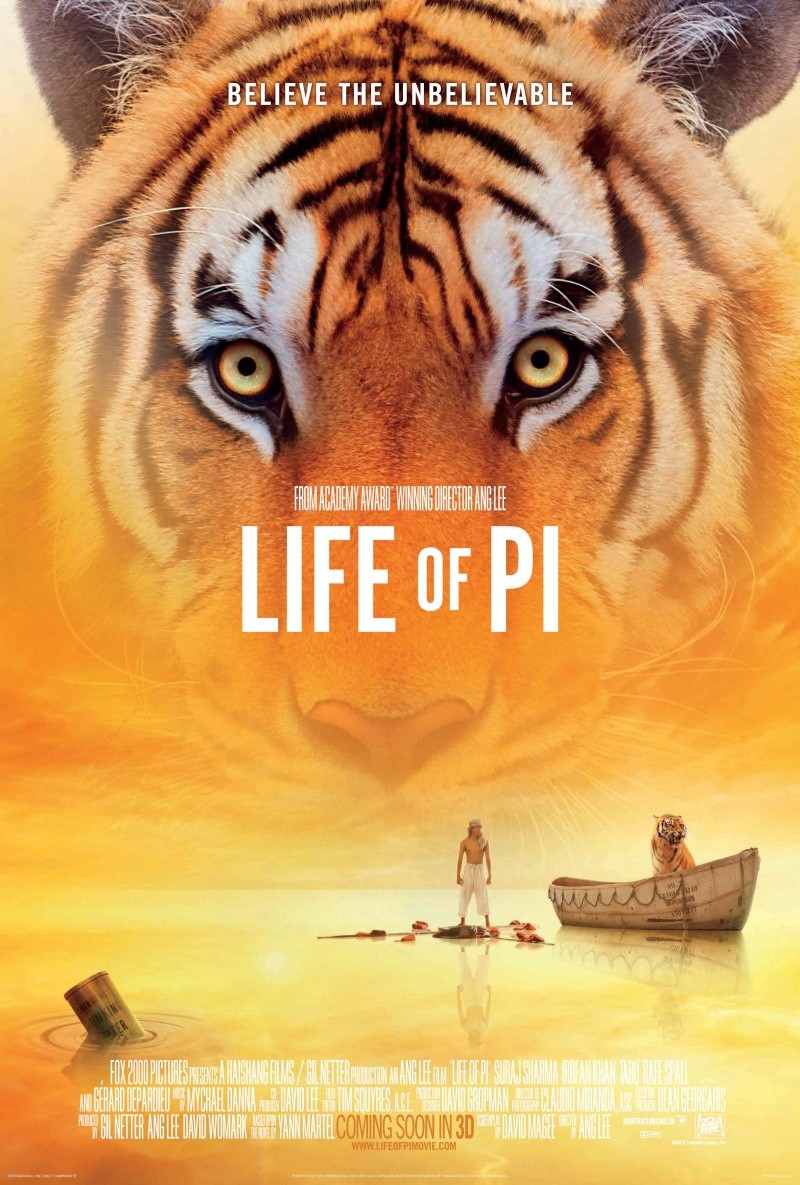Note - Although I don't feel this piece gives anything substantial away, it does discuss the film as a whole. Those who simply care about not having details of it's story revealed, be aware of potential spoilers.
Life of Pi seems
to be the story of a man on a spiritual journey through life towards
discovering what the concept of god actually means to him. I say the “concept
of god” because the film never defines him as anything more and really, what
more than a concept can god ever be to the moral man anyway?
I think calling Life
of Pi a spiritual journey is about right. It’s certainly not a religious
one in so much as that to use the word religion implies that the film preaches
a single way of thinking on the way to expressing a single point or meaning or
method of interpretation.
It doesn’t. Like its hero, it keeps its mind fully open to
all possibilities. Exploring many different religions on the way towards some
sort of spiritual enlightenment is how the young Indian boy Pi spends most of
his childhood. Of course he does. He is scolded by his father, being told that to believe in
everything is essentially to believe in nothing. In many ways, the boy’s father
is right. But you try telling that to a boy who's circle can't be squared.
It’s testament then to the true
power and mystique behind spirituality that Pi doesn’t find enlightenment
through one religion or one idea of god, although he gets to know many, but
through getting trapped at sea on a raft with a hungry Bengali tiger named
Richard Parker.
For Pi, like everyone who was born with the power of a mind that can think for itself, it is only
trapped at sea, under these circumstances, that he is able to look at life and
actually see god. That’s the story he tells to a Montreal writer who has come
looking to fill his creative well up with inspiration after being told of a
story that will make him believe in god.
So how does Pi find enlightenment from surviving the tiger
and the shipwreck that takes his entire family and leaves him stranded at sea?
The same way anyone finds enlightenment through any religion: by reflecting
back on the stories that have shaped it and finding meaning beyond their existence
as literal objects. Richard Parker, upon looking back, isn’t just a tiger; he’s
the main symbol at the centre of a journey towards something spiritual. Is the
story true? At the end of the day does it really matter one way or the other? You can change the size of the circle, but the numbers always come out the same.
Richard Parker is that mythical being that is both the one
thing threatening to end the life of Pi, while also the one thing in life that
keeps him struggling to survive. He’s the yin and the yang. And so god
sacrificed his only son so that we could be forgiven of our sins. Such cruelty
wrapped in such selflessness. Opposites that are opposed and yet one all at the same time. That's every idea we have of god isn't it? Form does not exist without function, good
without evil, light without dark, big without small, right without wrong. And
so everything in life goes…
Pi is initially disappointed when he finally arrives safely
at land only to find Richard Parker, his true connection to god, disappear into
the wilderness without even so much as a look back to acknowledge the spiritual
awakening that has been exchanged between them. Maybe Richard Parker wasn’t god after all. At
the end of the film he’s no more than just another tiger. And yet isn’t god supposed
to be in everything? If that’s true it must also be true that he’s in nothing
as well? Yin and yang. And so God sacrificed his only son…
The circle has no beginning or ending. It cannot be squared. It simply goes on
like this forever.
And so, by the end of the film, so beautifully brought to
life in stunning 3D by Ang Lee and his creative team from the bestselling novel
of the same name, Pi has told two stories that are both the same. One is a story of beauty
and one of cruelty, but both of enlightenment and awakening. One of them is
true. This inspires the film’s most important question: “Which one do you
prefer?” The choice is ours. We’re given the power to make it every day.
It’s a question we
could all stop to ask ourselves every once in a while. Maybe Richard Parker was
God? Maybe god can be found in everything after all? Maybe Life of Pi is its own spiritual experience; a film that, like the number pi itself, reaches transcendence? And then the final credits roll reminding us
that, no, Life of Pi is only a
movie, based on a book, created by fellow men and women, no different from
anyone else, created as a way to make a living.
They are both, for whatever it's worth, true. Which way of looking at it do you prefer?








